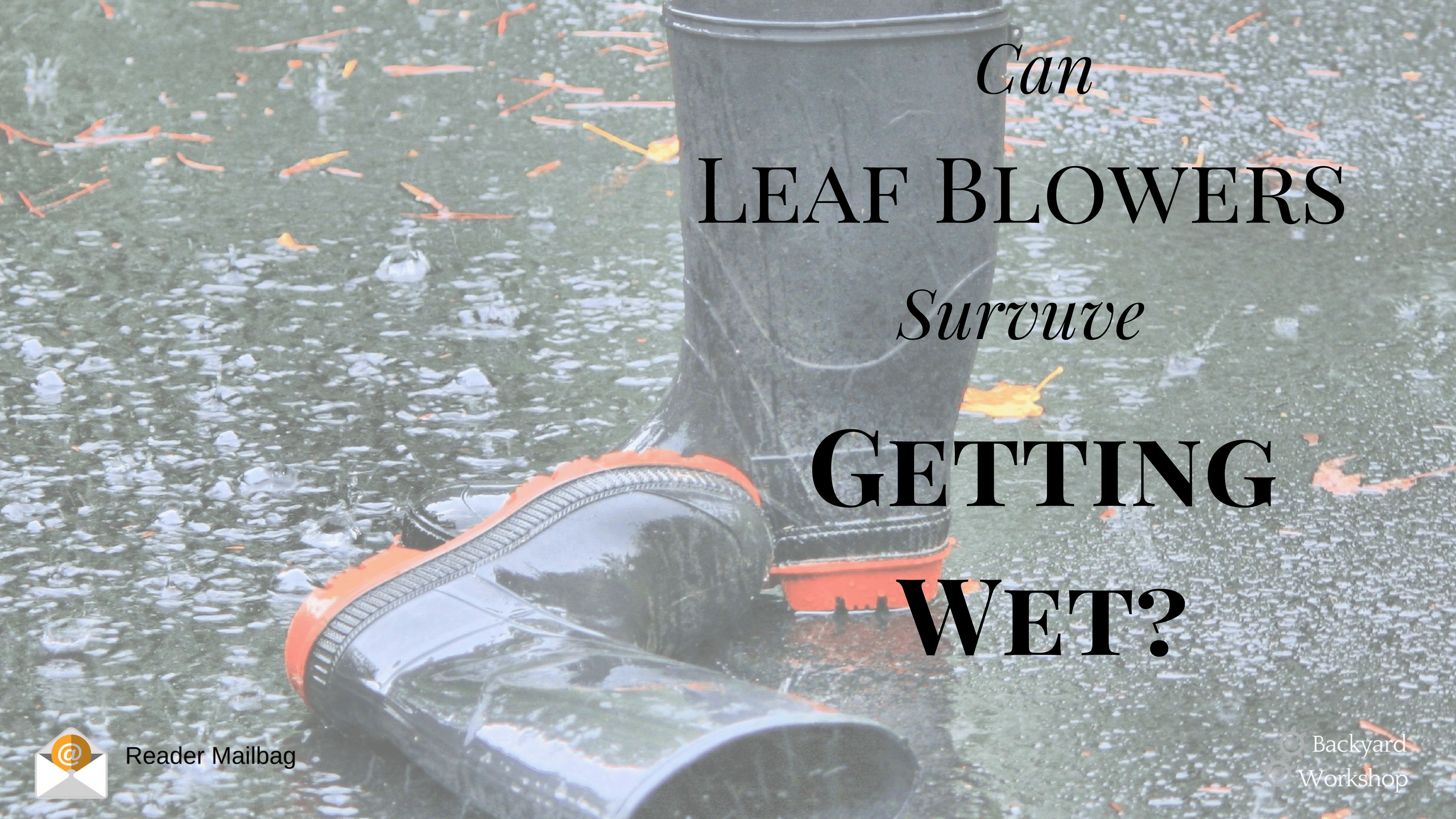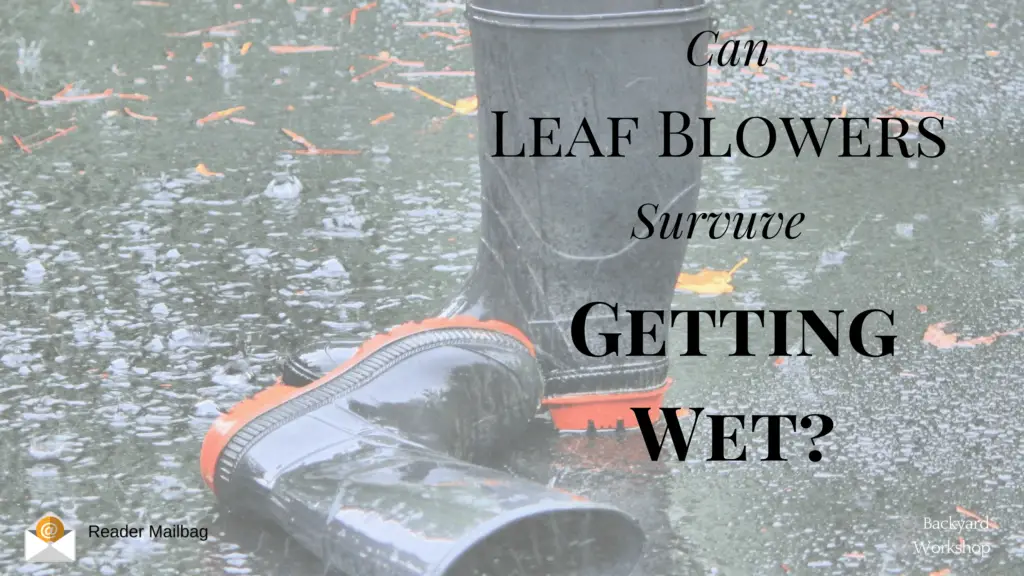Can Leaf Blowers Survive Getting Wet?


Q:
In a moment of temporary insanity, I accidentally left my leaf blower/vacuum in my backyard overnight. I had put it down on my patio after I finished blowing, and forgot about it in the dark.
Of course, we had a rain shower sometime during the night and my blower got soaked.
Any suggestions on what to do?
Getting your leaf blowing equipment wet doesn’t have to mean a trip to the store for a new leaf blower is in your future. A lot will have to do with what type of power your blower uses. Gas or petrol powered tools usually are no worse for wear from an occasional downpour. You might see some performance issues if the air filter gets soaked but that can be taken care of pretty quickly by drying it out or installing a new one.
Any damage you’d see from water would come from long-term exposure. In the case you kept it outside in an extremely humid or rainy environment for a whole season, you could start to see signs of rust developing. You might also have trouble with your gas absorbing water – that is a major problem for many 2-cycle engines in use today.
Therefore, it’s my advice that if you have a gas-powered leaf blower, don’t store it outside during the year.
It’s a different story if you own an electric-corded or battery-powered leaf blower/mulcher. Moisture can create short-circuits in electrical equipment, so you can permanently damage your electric-powered tools if you aren’t careful. Ideally, you’d disconnect any power from your blower as soon as you notice it’s wet. Most modern equipment is designed to not open a circuit until you turn on the mower but if your machine has a hidden fault you could be in for a surprise.
What To Do If Your Leaf Blower Gets Wet
If you find your battery or corded-electric tool has gotten wet, here are the steps you should take:
- Disconnect the power source. Dry off the batteries if applicable.
- Tilt the tool so any loose water can drain from the chassis. We want to get all the “low-hanging” water out of the device so when we blow dry it we don’t force water farther into the device.
- Towel dry the outside surfaces of your equipment. It’s not absolutely necessary but should speed up how long the next step takes.
- (Optional): If you are handy, you can disassemble the device case to get at more surface area to dry. If this scares you, don’t do it!
- Air or blow dry through the vents. If you have the time, air drying is probably the safest. It can take a few days however. Blow drying is much quicker but you do run a small risk of forcing water into mechanical places it isn’t meant to go. It depends on how risk-adverse you are vs how quickly you need to use your leaf blower.
- The moment of truth arrives: Once you are confident you’ve taken the time or effort to dry your blower, connect the power and start up the tool. If you see a spark or smell something burning, stop immediately and repeat the process. (Hopefully that won’t happen to you).
I hope that helps you Charlie!
Sincerely,
Team Backyard Workshop

